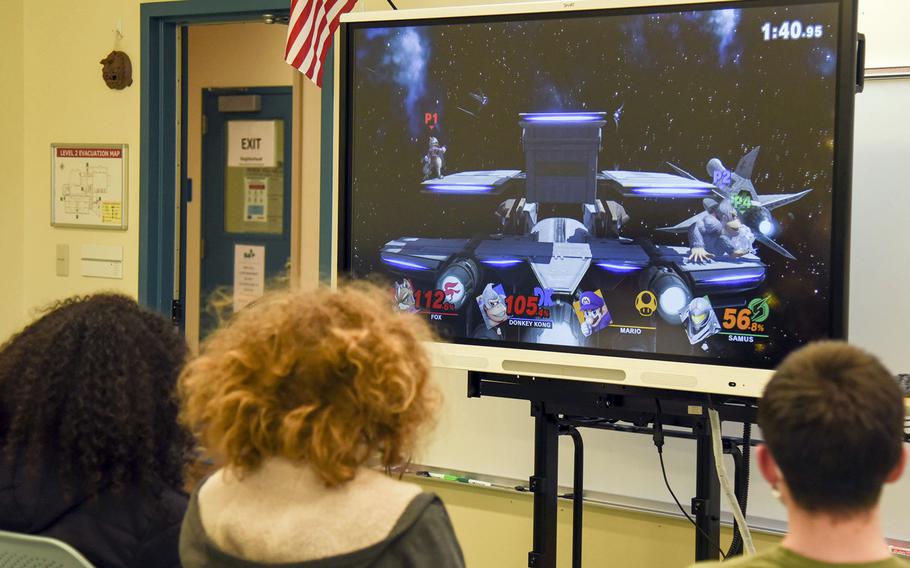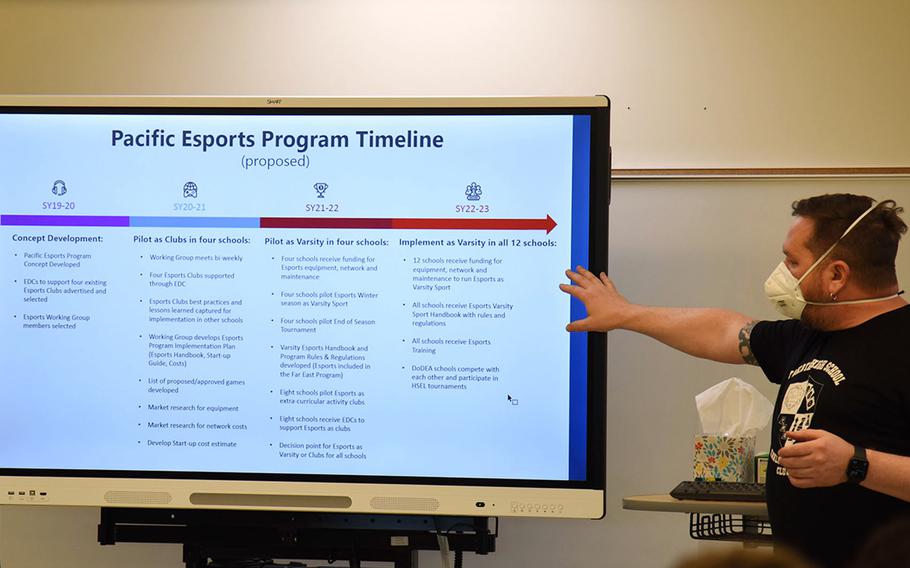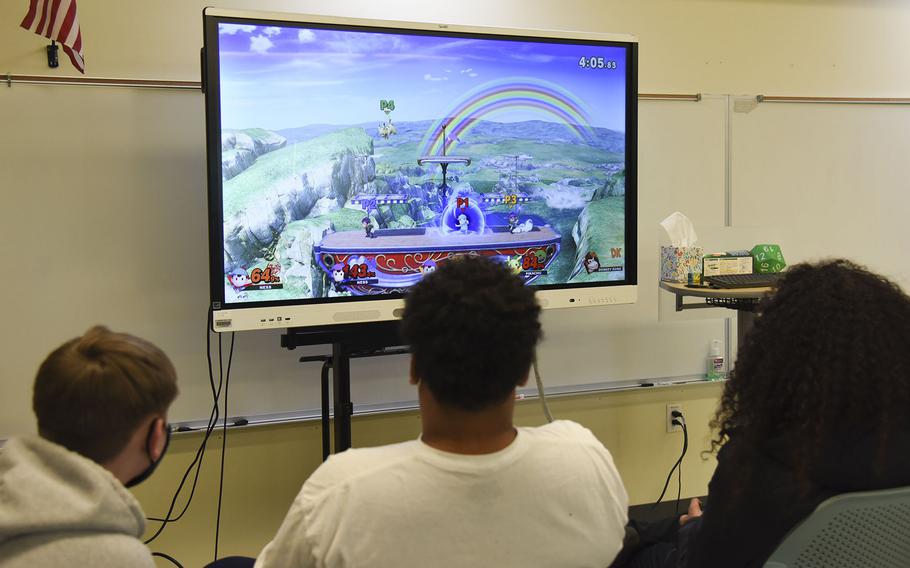
Esports club members play a game during their first meeting at Yokota High School on Yokota Air Base, Japan, Thursday, Jan. 20, 2022. (Juan King/Stars and Stripes)
YOKOTA AIR BASE, Japan — A handful of students at the high school on this base in western Tokyo met Thursday to chart their future in a new competitive endeavor — esports.
Yokota High joins several other Defense Department schools in the Pacific in creating a club for competitive gaming. The club sponsor, computer science teacher Jamey Weare, sees it going varsity one day.
“Essentially, esports is using game systems to compete against each other,” he told Stars and Stripes at the meeting. “There are some pretty big tournaments out there already with people playing Call of Duty and things like that.”

Computer science teacher Jamey Weare discusses Yokota High School's new esports club at Yokota Air Base, Japan, Thursday, Jan. 20, 2022. (Juan King/Stars and Stripes)
Originally the pursuit of amateurs, esports has become more competitive with some professional players earning millions in high-profile tournaments and the U.S. military standing up its own teams for recruiting, training and competition.
Weare said the club is the first step toward developing a varsity team that Yokota needs to compete against other schools in the region.
Schools with esports programs include Kadena High School on Okinawa, Matthew C. Perry High School at Marine Corps Air Station Iwakuni, both in Japan, and Camp Humphreys High School in South Korea.
“When I heard that they were doing it and they expanded it out, I thought that it would be a good opportunity for our students,” Weare said.
About 20 students turned out for the club’s first meeting. The group has no official competition schedule yet, but Weare said he may arrange some meets with nearby Department of Defense Education Activity schools at Camp Zama and Yokosuka Naval Base.
Esports is a rapidly growing industry, and last year grossed up to $1 billion in revenue according to the Influencer Marketing Hub website.

Esports club members play a game during their first meeting at Yokota High School on Yokota Air Base, Japan, Thursday, Jan. 20, 2022. (Juan King/Stars and Stripes)
Professional esports tournaments are doling out hundreds of millions of dollars in prize money as the sport becomes more popular. The highest earning esports team in 2021, Team Spirit, earned $3.68 million for each of its four members, according to dotesports.com.
Money and fame aside, esports develops sportsmanship, problem solving, networking and friendships, Weare said.
“It really serves a different group of kids,” he said. “A lot of these students don’t necessarily play traditional sports, so it gives them an opportunity to get those same benefits that students do get through sports but in an environment that’s a little more conducive for them.”
Andrew Quinn, 15, a Yokota sophomore and esports club member, agreed with Weare.
“You know people who aren’t as athletic or that don’t really know how to be that social, this is great for them,” he said.
With COVID-19 restrictions worldwide, esports has allowed people to connect in a different way.
“I think it’s going to be a lot of fun for the students,” Quinn said. “It’s a nice way to branch out so that we all have something to do.”
king.juan@stripes.com Twitter: @juanking_17